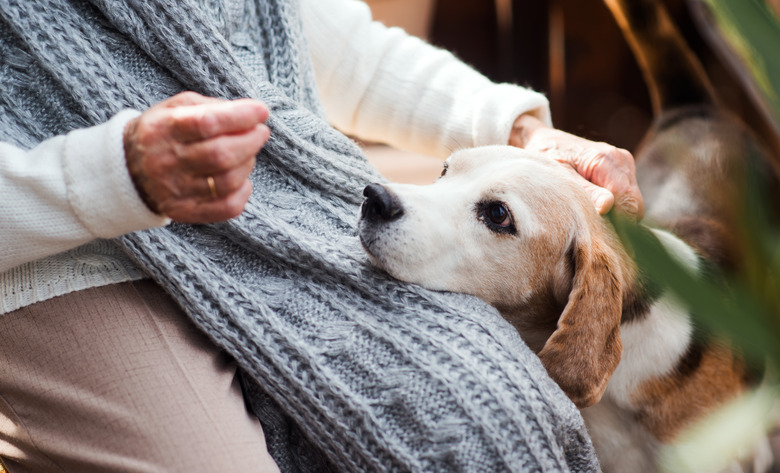Shingles In Dogs
Shingles is a disease in humans that is caused by varicella-zoster, the herpes virus, and it produces a painful rash on the body. The varicella-zoster virus cannot be transmitted to dogs, and dogs do not suffer from shingles. However, there are conditions in dogs that may cause similar symptoms, and there is a herpes virus that can affect dogs.
Potential causes of shingles symptoms
Potential causes of shingles symptoms
In humans, the primary symptom of shingles is a rash that affects one side of the body and may look similar to chickenpox. Your dog can't contract shingles, but there are conditions that can cause your pup to develop a rash. Skin infections, including bacterial infections from a cut and fungal infections, such as ringworm, are a common cause of a rash.
Allergies are another common cause. Your pup may be allergic to something in the environment or may encounter a poisonous plant, like poison ivy. He may have come into contact with a chemical, such as a fertilizer or cleaning product. Some dogs are allergic to flea saliva, which can also cause symptoms.
Some breeds are genetically more likely to develop rashes. This includes golden retrievers, Labrador retrievers, bulldogs, German shepherds, and standard poodles. If your dog develops a rash, be sure to consult your vet. A proper diagnosis is necessary to properly treat the underlying cause.
Canine herpesvirus transmission and symptoms
Canine herpesvirus transmission and symptoms
There is also a herpesvirus in the same family as the shingles virus that affects dogs. It is called canine herpesvirus, or CHV. The disease is most common in Asia and Europe. Just as dogs cannot contract shingles, humans cannot contract CHV. The virus is spread between dogs by direct contact and from mother to puppy in the womb.
Both puppies and adult dogs can get CHV. In puppies, symptoms include nasal discharge, loss of appetite, difficulty breathing, continuous crying, and stools that are yellow or green, soft, and odorless. Puppies may also have seizures, and the disease is often fatal. Puppies who recover from the illness may later experience blindness or other neurological symptoms.
Symptoms in adult dogs include coughing, sneezing, lesions on the genitalia, and miscarriage. Adult dogs experience less severe symptoms and are more likely to recover. Some dogs experience infection in their eyes with symptoms such as corneal ulcers, conjunctivitis, eye discharge, and squinting. However, they may carry the virus and continue to spread it to other dogs even after they seem to recover.
CHV treatment and prevention
CHV treatment and prevention
Unfortunately, there is no vaccine for CHV in the United States. The vaccine in Europe does help to prevent puppy death from the virus. The best way to prevent CHV is to prevent contact with any infected dogs. Diagnosis is usually made based on symptoms or blood testing for antibodies.
If puppies die from the disease, postmortem testing is generally recommended to confirm the diagnosis. Testing of tissue samples can also be done on stillborn pups. Other potential diseases that cause similar symptoms or death in puppies include parvovirus, adenovirus, and distemper.
Treatment options are limited and are rarely effective. If CHV is affecting the eye, antiviral eye drops, antibiotics, and pain relievers are often prescribed. If you know a puppy has been exposed but is not yet showing symptoms, antibody treatment from females who recovered from CHV may be helpful.

